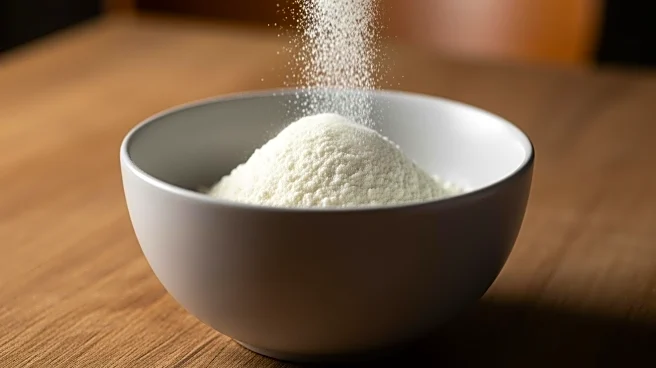Rapid Read • 9 min read
Nigeria has announced a six-month ban on the export of raw shea nuts, a crucial ingredient in the production of shea butter, which is widely used for its moisturizing and anti-inflammatory properties. The decision, made by Nigerian President Bola Ahmed, aims to shift Nigeria from being a major producer of raw shea nuts to a global exporter of refined shea butter and oils. This policy is expected to generate approximately $300 million annually, with projections of a tenfold increase by 2027. Nigeria currently produces nearly 40% of the world's shea nuts but captures only about 1% of the $6.5 billion shea butter market. The shea tree, found across Africa, is primarily harvested by women who process and extract shea butter from the nuts. The government has emphasized that the ban is intended to empower rural women and strengthen Nigeria's economy and global trade position.
AD
The ban on raw shea nut exports is significant for Nigeria's economy and the global beauty industry. By focusing on refining and exporting shea butter, Nigeria aims to capture a larger share of the lucrative shea butter market, potentially increasing its economic output and trade influence. This move could empower rural women who are integral to the shea nut harvesting process, providing them with more opportunities and economic benefits. Additionally, the policy could lead to increased investment in local manufacturing and processing facilities, boosting job creation and technological advancement within the country. For the global beauty industry, Nigeria's shift to refined shea butter exports may lead to changes in supply chains and product formulations, impacting brands that rely on shea butter as a key ingredient.
The Nigerian government will likely focus on developing infrastructure and support systems to facilitate the transition from raw shea nut production to refined shea butter exports. This may include investments in processing facilities and training programs for local workers. Stakeholders in the beauty industry, both domestically and internationally, may need to adjust their supply chains and sourcing strategies in response to Nigeria's new policy. Additionally, other African countries that produce shea nuts may observe Nigeria's approach and consider similar strategies to enhance their own economic positions in the global market.
The ban on raw shea nut exports raises questions about the ethical and environmental implications of increased industrial processing. While empowering rural women is a positive outcome, the shift to refined exports may lead to increased resource consumption and environmental impact. Furthermore, the policy highlights the broader trend of countries seeking to add value to their natural resources before exporting, which could influence global trade dynamics and encourage other nations to adopt similar strategies.
AD
More Stories You Might Enjoy












